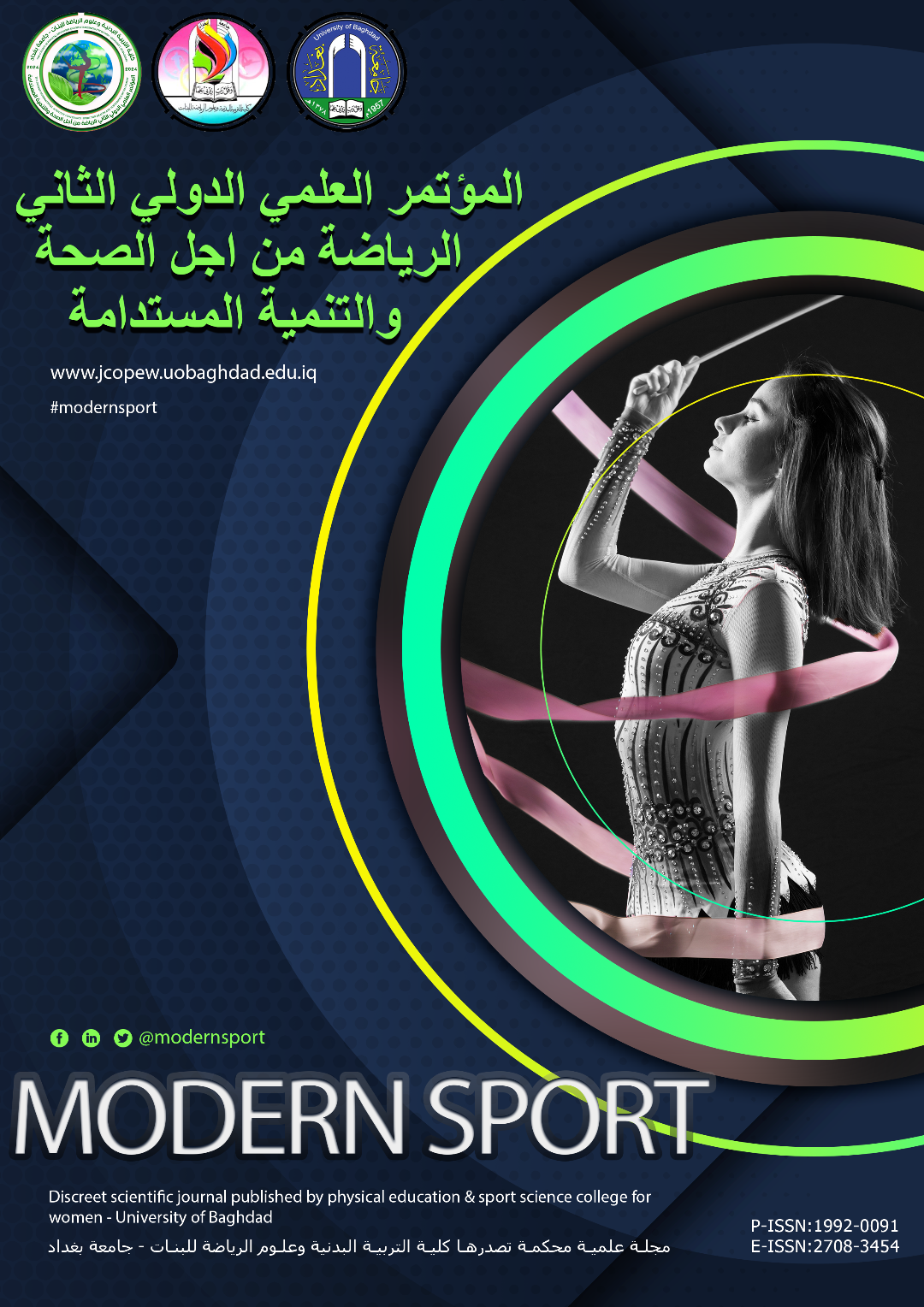The role of the coach in the organizational health of the team from the point of view of football players in the Iraqi Premier League
DOI:
https://doi.org/10.54702/4xfb2182Keywords:
the role of the coach, the team, organizational healthAbstract
The importance of the research is that the role of the coach is to work on developing self-esteem among the players. The players need the support of their teammates. The coach setting specific goals that challenge the team members leads to a positive impact on the performance of the individual and the group and on the health of the team. The goals set a high standard for achievement. It makes the team focus on completing what it needs. The research problem is that the ability of the organization (team) to work effectively to achieve positive performance in the long term, adapt appropriately, change appropriately, and grow from within, by reconciling strategic goals. As important as this is, many coaches ignore organizational health because they often lack a clear way to measure, diagnose, and improve it. One of the objectives of the research is to build a measure of the role of the coach in the organizational health of the team from the point of view of the football players. To establish standard levels for the measure of the role of the coach in the organizational health of the team from the point of view of the football players. To identify the role of the coach in the organizational health of the team from the point of view of the football players. The researchers used the descriptive approach was used by the survey method to suit the nature of the research. The research community consists of all sports clubs participating in the Iraqi league for the season (2021-2022), and the sample was chosen intentionally and consisted of players from the league clubs, numbering (663) players, as the total number of those who underwent the experiment reached ( 345) players (02.52%) and (15) players for the exploratory experiment. As a result of this, the sample was divided into two parts, the first for the procedures for designing and building the scale and the second for the purpose of applying the scale, as follows: First: - The sample for building the scale: It included a number of players from Iraqi Premier League clubs. In (open) football, the number of players was (210), and their percentage reached (60.86%) of the research community. Second: The sample for applying the scale: It included (120) players, with a percentage of (34.78%) players from the research community. The researchers concluded that organizational health is distinct when players clearly have the identity to which they belong, and feel a sense of belonging and attraction. The most important recommendations of the researchers are that the coach must possess this skill and manage it with high efficiency, as the availability of organizational health is an essential technique in successful training, especially when using different training techniques activities the successful coach must manage the team with high efficiency.
References
- Abdul Majeed Abdel Hamza Nasser and Misriya Raddam Al-Marzouq: (1989). Al-Ainat, Mosul, Higher Education Press in Mosul, p. 63.
- Adnan Awad: (2008). Scientific Research Methods, Cairo, Arab Marketing and Supplies Company, p. 41.
- Ahmed Suleiman Odeh: (1993). Measurement and evaluation in the teaching process, 2nd edition, Irbid, Dar Al-Amal, p. 26.
- Bilal Khalaf Al-Sakarna: (2012). Work Ethics, first edition, Dar Al Masirah for Printing and Publishing, Amman, p. 78.
- Khairuddin Ali Owais and Essam Al-Hilali: (1997). The Mathematical Meeting, Dar Al-Fikr Al-Arabi, Cairo, p. 92.
- Raysan Khuraibet: (1987). Research Methods in Physical Education, Dar Al-Kutub Directorate for Printing and Publishing, Mosul, p. 62.
- Shaker Mubarak Jassim: (1990). Vocational guidance systems and comparative educational guidance, Higher Education, University of Basra, p. 54.
- Fayez Jumaa Al-Najjar and others: (2010). Scientific research methods - an applied perspective, 2nd edition, Amman, Dar Al-Hamid, p. 48.
- Muhammad Hassan Allawi and Muhammad Nasr al-Din Radwan: (2002). Measurement in Physical Education and Sports Psychology, Cairo, Dar Al-Fikr Al-Arabi, p. 116.
- Maan Ziyad: (1986). The Arab Philosophical Encyclopedia, Arab Development Institute, p. 187.
- Abdel Halim Jabr Nazzal and Muhammad Hassan: (2019). An analytical study of the level of transactional leadership according to the stage of mature participation among coaches of Premier League football clubs from the players’ point of view: Journal of Physical Education Studies and Research, issue 128, p. 12.
- Abdul Halim Jabr Nazzal: (2005). Constructing and applying a measure of the coach’s ability to make decisions and its relationship to the success of the sports team, University of Basra, College of Physical Education and Sports Sciences. Doctoral thesis, p. 107.
- Al-Nedawy, R. I. A., & Al-Mousawi, S. Q. S. (2022). Effect of a training program on the development of physical abilities in football goalkeepers. SPORT TK-Revista EuroAmericana de Ciencias del Deporte, 36-36.
- Diana Haider, & Widad Kadhum. (2021). The Effect of compound exercises using the (RANDOM SHOT) device and the electronc goal ln developing the speed of the motor response and the rapid ability of the two goal keepers youth football halls. Modern Sport, 20(3), 0022. https://doi.org/10.54702/msj.2021.20.3.0022
Downloads
Published
Issue
Section
License
Copyright (c) 2024 Modern Sport

This work is licensed under a Creative Commons Attribution 4.0 International License.















